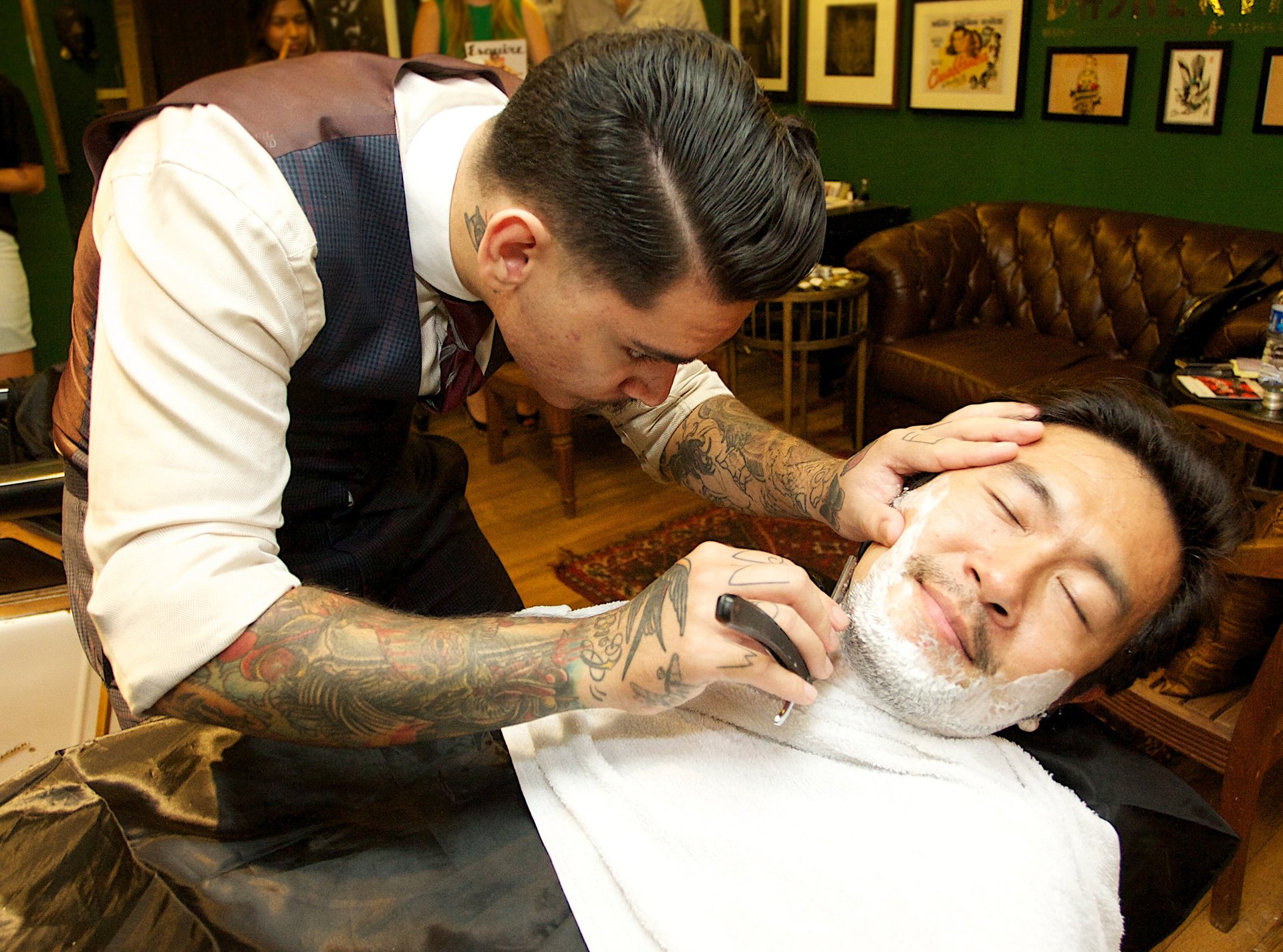Movember is giving men a sense of community during a time of isolation
Way back in the early 2000s, I’m told, mustaches were very much not at thing, at least in Australia. “Now a mustache doesn’t seem so ridiculous, but in 2003, hipsters weren’t really around,” says Australian Michelle Terry. That year, two men convinced 30 friends to grow mustaches as a bit of a lark. “It was an unusual thing to do,” says Terry, “so people would cross the street to say something to them, to go after this mustachioed man.”


Way back in the early 2000s, I’m told, mustaches were very much not at thing, at least in Australia. “Now a mustache doesn’t seem so ridiculous, but in 2003, hipsters weren’t really around,” says Australian Michelle Terry. That year, two men convinced 30 friends to grow mustaches as a bit of a lark. “It was an unusual thing to do,” says Terry, “so people would cross the street to say something to them, to go after this mustachioed man.”
That lark grew into Movember, a global nonprofit focused on men’s health. Once a year, the organization—now led by Terry as CEO—mobilizes men to offer up their facial follicles for a cause. “It’s evolved for us to be a Nike swoosh,” says Terry. “It stands for something—taking action on men’s health.”
Movember was initially focused on prostate cancer, which will affect one in nine men in their lifetime. But over a decade ago, the organization broadened its scope, to focus on testicular cancer and mental health. The latter in particular has gotten more attention in recent years, as the negative impacts, both psychological and physiological, of toxic masculinity have come into focus.
In 2018, men in the US were 3.7 times more likely than women to die by suicide. Those deaths are on the rise in the US though declining elsewhere in the world. “Every suicide in the world is a tragedy, but the fact that so many are men means we have a systemic problem,” says Terry. “How can we reach men differently before they approach that degree of distress?”
In consultation with experts, Movember has identified and made attempts to address that problem by establishing new forms of connection. “The construction of masculinity is as anti-femininity—we learn from an early age to watch what women do, and for God’s sake don’t do it,” says Christopher Kilmartin, a professor emeritus of psychology at the University of Mary Washington. “There are a few factors in the suicide problem, but one big one is for men who feel despondent and accept this dominant mode of masculinity, that they don’t ask for help, that they don’t have anywhere to go.”
That feeling of isolation, for some, has been exacerbated by the pandemic. For many men lockdown orders and social distancing measure have taken away a main way they bond. “There are a lot of men who don’t have any friends but may have a lot of ‘buddies’—that’s someone you bond with around a third object or activity. That results in a lower level of intimacy, but it’s still support,” Kilmartin says. A May survey from Movember found that 42% of men from four countries said that no one had checked in with them—one way to prevent suicide—since the start of the pandemic.
Reaching out to people to express concern is one way to help them feel less alone. So Movember has released several digital tools intended to help men connect. One, called Conversations, simulates a text exchange with a closed-off man in order to help a person learn how to get them to open up. Another, Family Man, provides tips and coaching for frustrated parents of young children.
Kilmartin thinks these tools can be useful, though they’re not a panacea for men’s mental health concerns. “Trying to teach men how to self disclose and how to support others who disclose to them…they’re really tough to learn for a lot of people,” he says. Just because an intervention doesn’t fix everything doesn’t mean it’s not worth doing, he notes. “At least they’re starting the conversations.”
For those interested in finding connection through Movember this year, there are more options besides growing a ‘stache. The organization is encouraging people to get out and move 60 miles in the month, emblematic of the 60 men who die by suicide globally every hour. There will be digital events, like Zoom trivia nights or lunches; at the start of the month the organization plans to hold a massive shave-down, where mo-growers can start the month with a clean face and commune with others doing the same.
Leaning on community, asking for help, or seeking out professionals—these can all be important ways to care for one’s mental health in difficult moments. “Keep talking, keep looking, keep walking. Have a little faith that if you hang in there, things will get better. We want to build resilience in men as well,” Kilmartin says.
If you or someone you know is in crisis, in the US you can call the National Suicide Prevention Lifeline, 24/7, for confidential support at 1-800-273-8255. For hotlines in other countries, click here.